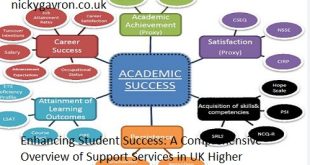If you are considering the path of higher education, or if you’re a parent contemplating the future of your child, you may be weighing the benefits of a higher education plan in the United States. Education, some opine, is one of the most substantial investments we can make in ourselves and our future. Investing in a higher education plan not only provides us with a plethora of knowledge but also equips us with life skills that are necessary to make our mark in the world. Let’s dive into the top eight advantages of opting for a higher education plan in the USA.
- Wide range of courses: American universities offer a multitude of programs in nearly any field you can think of. Whether it’s arts, sciences, humanities or something quite specialized, you’re likely to find it.
- Cutting-edge technology: American institutions are known for staying at the forefront of technology and research. Students are given the opportunity to acquire practical knowledge in their chosen fields.
- Cultural diversity: A significant advantage of studying in the USA is the exposure to a culturally diverse environment, which broadens perspectives and enhances cross-cultural understanding.
- Networking opportunities: Institutions in the USA offer vast networking opportunities, which can be critical for establishing a successful career.
“Planning for higher education could easily be one of the most significant decisions of your life. However, the American education system, thanks to its diverse opportunities, clubs and societies for almost all fields, and flexible coursework, can offer you a rich, well-rounded educational experience.”
C textbooksertainly, education goes beyond, and the USA provides a holistic environment that nurtures your overall development. Now, let’s look at the remaining four significant advantages.
Casting the Vision: Understanding the Value of Higher Education
By seeking higher education, you’re not just expanding your knowledge or ticking off a cultural norm. You’re signing up for a life-changing journey that will lead to numerous benefits. Let’s delve into eight notable advantages of higher education plans in the USA:
1. Skill Acquisition: This is an obvious one, but it can’t be overstated. Higher education is specifically designed to provide you with extensive knowledge and specialised skills in your area of interest. Whether it’s engineering, medicine, arts, or entrepreneurship, you gain practical and theoretical understanding that prepares you for your future career.
2. Broadened Perspectives: Higher education exposes you to diverse cultures, beliefs, and worldviews. This diversity helps broaden your understanding of the world, fostering empathy, tolerance, and comprehensive thinking skills.
3. Networking Opportunities: College and universities are excellent platforms for forging useful connections and creating lasting friendships. These networks can prove invaluable in your job search, providing referrals, industry insights, and moral support throughout your career journey.
4. Increased Earning Potential: Generally, higher level a of education translates to higher earning potential. According to data from the Bureau of Labor Statistics, individuals with a bachelor’s degree earn significantly more than those with a high school diploma.
5. Greater Job Security: Employers are likely to retain workers with a strong educational background during economic downturns. In addition, diverse skills and advanced knowledge make you more resilient in the face of job market fluctuations.
6. Personal Growth: Beyond academic growth, higher education fosters personal development. You become more independent, learn to manage your time, handle pressure, problem-solve, and many other life skills that will serve you for years to come.
7. Access to Resources: Universities and colleges offer access to a plethora of resources like research materials, libraries, workshops, computer labs, and internships that may not be readily accessible elsewhere.
8. Civic Involvement: Higher education contributes to forming better citizens. Statistics show college graduates are more likely to participate in civic activities, including voting and volunteering.
Embracing higher education can truly shape your life’s trajectory. The value of a higher education plan in the USA extends beyond direct academic benefits into your personal life and career growth. Remember, it’s an investment, not only in knowledge but also in your future.
Breaking Down Barriers: Accessibility of Higher Education in the USA
The accessibility of higher education in the USA is one of the key benefits that you’ll find quite appealing. With over 5,300 colleges and universities spread across the nation, the US stands as a beacon of academic diversity and opportunity. But that’s just the starting point. Let’s journey together to discover the true dimensions of this accessibility.
To begin with, that diversity? It’s more than just numbers. There’s a place for everyone, regardless of your academic interests. From liberal arts colleges to research universities, specialized institutions to community colleges – the spectrum of options is broad, giving you the freedom to curate your academic experience based on your aspirations. In fact, diverse education pathways such as online learning and adult education programs are also gaining momentum, adding to the overall accessibility.
Geographical accessibility also plays its part in ensuring the availability of higher education to all corners of the country. The presence of institutions in remote areas, in big cities, and everywhere in between means that no matter where you reside, a quality education is within your reach. This distribution opens doors to students from varying social and economic backgrounds, promoting equal education opportunities.
Additionally, the financial assistance programs prevalent in the US education system add another layer to this accessibility. Scholarships, grants, and loans are abundantly available for both domestic and international students, reducing financial barriers to higher education. To make this even better, many institutions offer need-based or merit-based awards, making it feasible for diligent students to receive financial aid.
Ultimately, the accessibility to higher education in the USA is not just about the quantity of educational institutions available. It combines factors like diversity, geographical reach, and financial ease, displaying a holistic approach to make quality education reachable to all, a true testament of the commitment towards nurturing the nation’s intellectual capital.
The Financial Upside: Economic Benefits of Higher Education
Oh, the sweet taste of financial independence and stability! Who doesn’t dream about it? Indeed, pursuing higher education in the USA often equates to a higher income potential down the line. A recent study by the US Department of Education indicates that individuals with college degrees have a median weekly earning notably higher than those with only a high school diploma or less.
Regardless of the economy’s wind’s direction, having a college or university degree under your belt can offer invaluable financial security. The more credentials you have, the more opportunities become available for you. Whether it’s about climbing the corporate ladder, venturing into entrepreneurship, or aspiring for a high-paying profession, higher education is a fantastic tool to break the glass ceiling that income brackets might impose.
Think of it like a sturdy ship that can withstand any storm or tide—the ability to survive and thrive, regardless of economic weather. Higher education could be the sail that propels you to better career opportunities and, in turn, greater financial stability.
Moreover, your education investment in higher isn’t just a personal gain. It significantly contributes to the country’s economy. A highly educated workforce stimulates economic growth, leads to higher tax revenue and social contributions, and fosters innovation and development. In essence, acquiring a higher education degree in the USA doesn’t just enrich you— it enriches the nation.
Global Recognition: The Prestige of US Higher Education
As we delve deeper into the prestige of US higher education, you might want to take note that universities in the United States have a strong global reputation. Notwithstanding where you go on the planet, the US higher education certification is highly respected.
This international regard comes not just from the comprehensive curriculum offered but also from the rigorous academic standards maintained by these institutions. Their quest for promoting groundbreaking research and innovation has established their credibility over the years. It’s not just on paper, either. Universities such as Harvard, MIT, and Stanford have a robust alumni network creating ripples in the global arena. They are the leaders, innovators and Nobel laureates shaping the future and contributing substantially to their respective fields. This connection with esteemed alumni is a unique advantage that can open doors to numerous opportunities.
What’s more, the faculty at US universities often consist of expert professionals who are esteemed in their field and hold a world-class track-record in teaching and research. This provides you with a golden opportunity to learn from the best of the best. Their wealth of knowledge and intuitive teaching methodologies assure a comprehensive learning experience that will last a lifetime.
Whether you’re eyeing a top spot in a global corporation, or dreaming of creating groundbreaking solutions to the world’s problems, the prestige of a US higher degree will undeniably serve as a robust launchpad. Remember, prestige might not be everything, but it surely offers a head start in this fiercely competitive world.
Stepping Stone to Success: Career Advancement through Higher Education
Let’s take a step back and consider this: how many times have you heard that a degree can open up countless opportunities? It’s hard to ignore, isn’t it? That’s because career advancement is one of the prime advantages of pursuing higher education.
Network-building is a major contributor to anyone’s professional advancement, and higher education serves as a hotbed for such interactions. These networks could involve friends, professors, mentors, or even industry professionals that one might meet during internships or campus events. This network can provide an amazing advantage in the pursuit of your dream job or advancement in your current profession.
Not just that, higher education equips you with skills that go beyond your major. Skills such as critical thinking, problem-solving, and effective communication are highly valued in the job market, and can set you apart from the pack.
Furthermore, the US higher education curriculum is often updated to reflect industry trends, thereby giving you the most needed skills in your chosen field. You’re not just gaining an education, you’re also gaining a competitive edge in the market.
Let’s not forget that many roles in today’s job market require a minimum of a bachelor’s degree. Higher education increases your chances of landing these roles. In fact, graduates often observe higher wages compared to non-graduates. This directly correlates to overall job satisfaction, a decisive factor in one’s personal and professional success.
In essence, pursuing higher education in the USA can be a springboard for career success, creating a pathway for diverse opportunities that promise personal growth and financial stability. So, the question really becomes–isn’t this an investment worth making?
Enhancing Life Quality: The Long-term Benefits of Higher Education
Now, let’s dive a bit deeper into how higher education in the USA positively impacts your quality of life, particularly in the long run. It’s not just about wearing the proverbial robe of an academic degree, there’s a cornucopia of personal improvements invested in this education journey.
Firstly, higher education promotes self-growth. You emerge as an enlightened person not just in your field of study, but also as an individual. Higher education is a transformative phase where you cultivate essential life skills such as critical thinking, problem-solving abilities, and time management skills. It’s a period wherein your intellectual capacities get refined and your horizon broadens.
Another significant aspect is the boost to self-confidence that comes with a higher degree. When you invest your time and energy in mastering a field, it empowers you and makes you more self-reliant. This heightened confidence is key in becoming more effective in your personal and professional life.
Higher education also has a direct correlation with healthier lifestyle choices. Research indicates that graduates are more likely to have a balanced diet and regular physical exercise routines. These subsequent health benefits contribute positively to your lifespan and well-being.
Finally, mental health benefits are worth mentioning. The University experience often results in a more resilient mindset and greater resilience means you are better prepared to handle life’s many challenges. In essence, higher education is an investment into a healthier, happier, more fulfilled version of you.
In conclusion, while the journey through higher education can be challenging, the advantages far outweigh the sacrifices. Improving your life quality is yet another reason why pursuing higher education in the USA is a decision you’ll never regret.
The Research Advantage: Academic Opportunities in American Universities
If you’ve ever dreamt of innovating groundbreaking technologies, exploring uncharted territories in science, or perhaps revitalizing key sectors of human life like healthcare, environment or society, pursuing higher education in the USA could serve as your best launching pad. Unmistakably, the research opportunities presented by American universities are among top reasons they are sought-after worldwide.
American universities are not merely academic institutions; they’re veritable hubs for research and development with extensive facilities and resources. With millions of dollars invested annually in research projects, the opportunities for students to participate and contribute are immense.
Whether you’re interested in basic or applied research, you can engage directly in meaningful projects that aim to tackle pressing issues or generate new knowledge. This exposure to research not only benefits your academic growth but also brings about personal development. You’ll learn to think critically, problem-solve creatively, work collaboratively with others, and communicate effectively – valuable skills that translate into nearly all professional and life scenarios.
Moreover, having hands-on research experience makes your resume more appealing to potential employers or graduate programs. Take part in a project, co-author a published paper or two, and witness how your career is driven forward by the advantage of the research-oriented American higher education system.
Moreover, this realm of research and innovation often leads to forging connections with professors, fellow researchers, and industry professionals. These connections can open doors, provide mentoring, and enable collaboration, both during your academic journey and beyond.
So, if you’re eyeing to contribute elite journals, achieve significant findings, or make your mark in the academic world, remember that high-quality research is a cornerstone of American higher education. Its advantages are myriad and profound, all nurturing your aspirations to become an influential member of the global academic or professional community.
FAQs:
1. Why is Higher Education valuable in the USA?
Higher Education in the USA holds immense value. It is associated with an array of benefits encompassing career progression, economic growth, global recognition, and substantial research opportunities.
2. Is Higher Education in the USA accessible to everyone?
Yes, the USA has programs and policies in place geared towards increasing the accessibility of higher education for students from diverse backgrounds. However, the pathway and journey can vary, and financial considerations remain a crucial factor.
3. What are the economic benefits of Higher Education?
Higher Education often correlates with higher earning potential. Graduates with higher academic degrees tend to secure higher-paying jobs, fostering economic stability and growth.
4. How does the global community perceive US Higher Education?
The US is highly regarded in the global academic community. American universities consistently rank among the top in the world, offering globally recognized degrees that can boost career prospects anywhere.
5. How does Higher Education assist in Career Advancement?
Higher Education can act as a stepping stone to success, often opening doors to more career opportunities, leadership roles, and chances for networking within desired industries.
6. What are the long-term benefits of Higher Education?
Apart from the professional and economic benefits, higher education can also lead to enhanced life quality. This can manifest via better health, socio-political consciousness, and an appreciation for lifelong learning.
7. What academic opportunities do American Universities provide?
American universities offer a wide range of academic opportunities, which include robust research programs, interdisciplinary studies, and the opportunity for students to learn under renowned faculties in well-equipped institutions.




